
Is Coconut Oil Good for Chapped Lips? Or the Opposite?
We’ve all had that moment where our lips feel dry, cracked, and just plain uncomfortable.
Sure, you can reach for chapstick, lip balm, or peptide treatment to help heal the problem, but some people swear by using coconut oil instead. But is this really beneficial? Is it actually helping your chapped lips?
Let’s break down the facts and get to the bottom of this question.
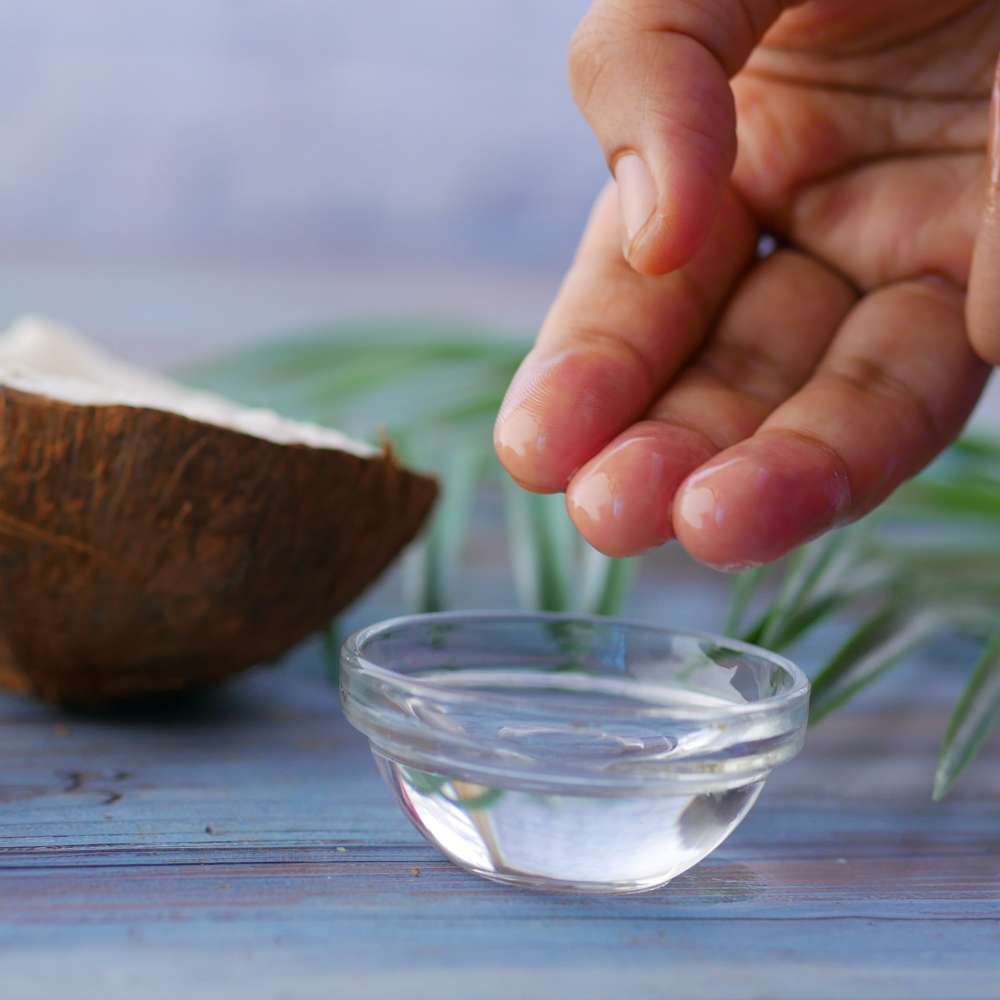
What is Coconut Oil?
Coconut oil has been used in many cultures around the world for centuries.
It's extracted from the meat of mature coconuts and is packed with saturated fat, vitamins, minerals, and other nutrients that are beneficial to skin health.
Organic coconut oil has been used as an ingredient in soaps, cosmetics, lotions, shampoos, conditioners, and hair treatments due to its moisturizing properties. Additionally, it can also be ingested for various health benefits.
Is Coconut Oil Good for Chapped Lips?
The short answer is yes! Coconut oil can help heal chapped lips and cracked lips because it contains acids that are fatty which act as natural moisturizers.
Additionally, its antioxidant properties protect your lips from environmental damage like sun exposure and air pollution.
The anti-inflammatory effects of coconut oil also help soothe redness and irritation caused by chapping.
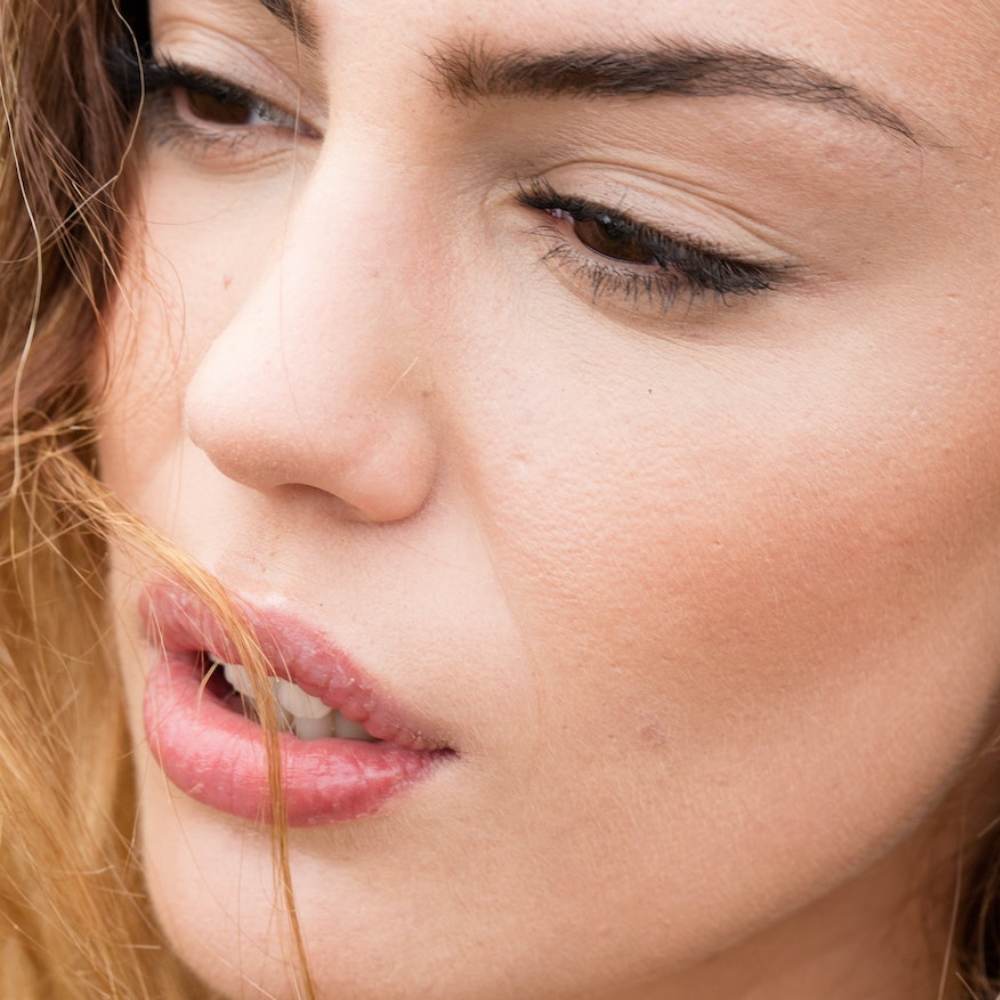
How to Use Coconut Oil on Your Lips
Using coconut oil on your lips is simple—just apply it directly with your fingertips or use a cotton swab if you don't want to get oily fingers!
Make sure you apply enough so that you have an even layer covering your entire lip area; this will ensure maximum moisturization and healing benefits!
You can even add a few drops of essential oils such as lavender or tea tree oil if you'd like an added boost in terms of scent or healing power (just make sure to do a patch test first!).
For best results use twice daily until your chapped lips have healed completely.
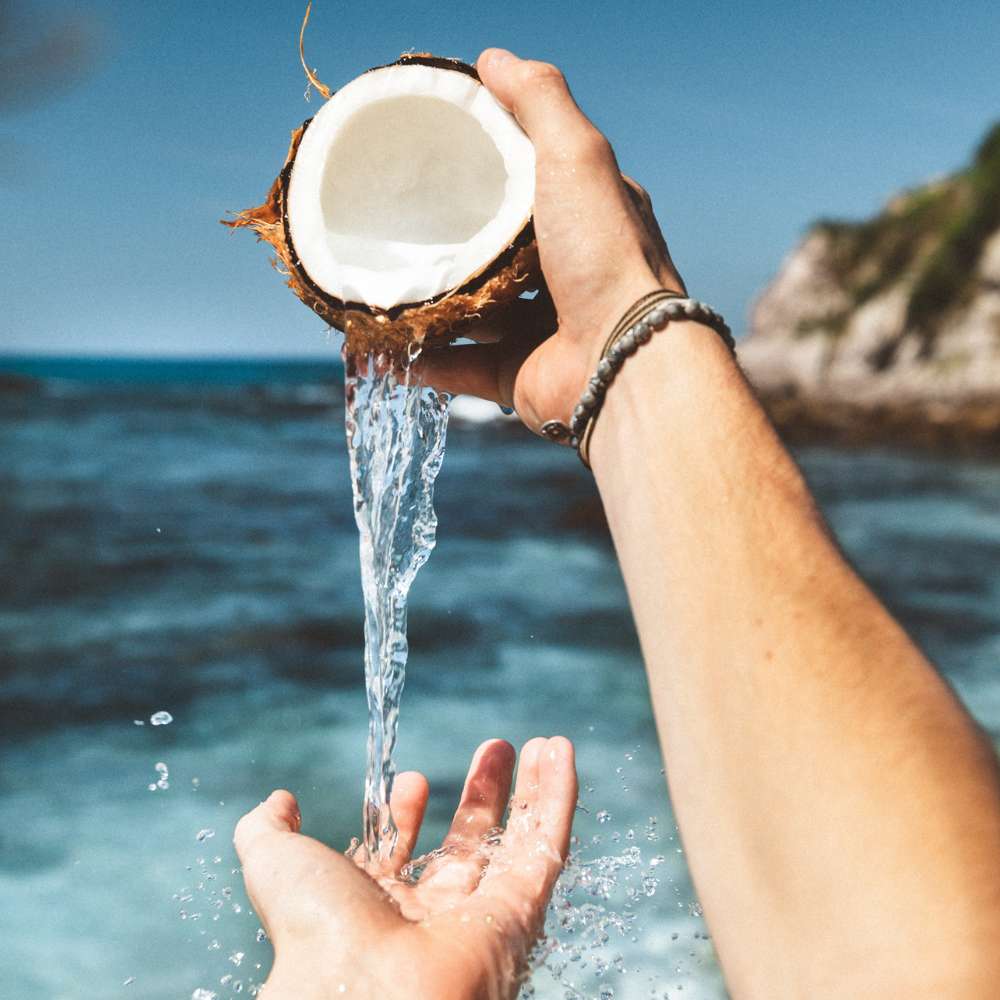
How Do You Make Lip Balm with Coconut Oil?
Making a coconut oil lip balm is a simple and easy process. Combining coconut oil with beeswax makes a delicious lip balm. Here's a basic recipe to get you started:
Ingredients:
- 2 tablespoons coconut oil
- 2 tablespoons beeswax pellets
- 10-15 drops of essential oil (optional)
Instructions:
- In a small saucepan, combine coconut oil and beeswax pellets together over low heat to melt.
- Once equal parts coconut oil and beeswax are melted, remove from heat and stir in your desired essential oils (if using).
- Pour the mixture into small containers, such as lip balm tubes or tins.
- Let the lip balm cool and solidify before using.
That's it! You can experiment with different oils to create your own customized scents, or add a few drops of vitamin E oil for added nourishment for your lips.
Note: Be sure to store your homemade lip balm in a cool place to prevent melting.
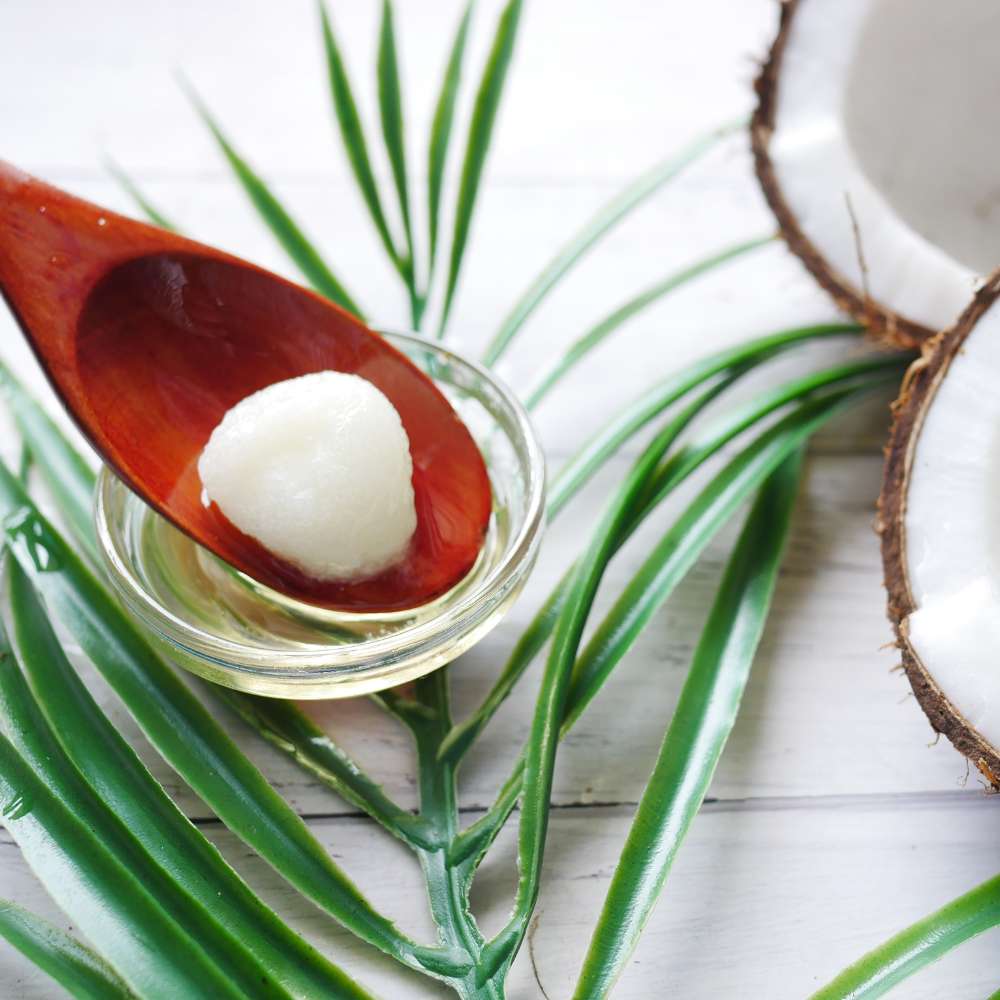
Is Vaseline or coconut oil better for lips?
Both Vaseline and coconut oil can be effective for moisturizing and protecting the lips, but they have different properties and benefits.
Vaseline is a petroleum jelly product that creates a barrier on the skin to lock in moisture.
It's very effective at preventing moisture loss, which is why it's often recommended for dry or chapped lips. However, some people may find it too thick or greasy for their liking.
Coconut oil, on the other hand, is a natural oil that's rich in fatty acids and antioxidants.
It has antimicrobial properties that can help prevent infection, and it also contains vitamin E which can nourish and protect the skin.
Coconut oil is lighter than Vaseline lip balms, making it easier to apply and less likely to feel greasy or heavy.
In general, both Vaseline and coconut oil can be good choices for lip care depending on your personal preference.
If you're looking for a simple, affordable option with no added fragrances or ingredients, coconut oil might be a good choice.
If you need something more heavy-duty to repair severely dry lips, Vaseline could work better.
Does Shea Butter Help with Chapped Lips?
Yes, shea nut can be very helpful for chapped lips. Shea butter is a natural fat extracted from the nuts of the African shea tree.
It has anti-inflammatory and healing properties that can soothe and repair dry, cracked lips.
Shea butter is rich in vitamins A and E, which help to nourish and protect the skin. It's also high in fatty acids that can help to lock in moisture and prevent dehydration.
To use this natural butter for chapped lips, simply apply a small amount to your lips as needed throughout the day. You can also mix it with other oils or ingredients like beeswax or coconut oil to create a DIY lip balm.
Overall, using shea butter for dry lips can be a great way to provide gentle yet effective relief from dryness and discomfort.

Is Coconut Oil Anti-Fungal or Antibacterial?
Coconut oil has both anti-fungal and antibacterial properties. The lauric acid in coconut oil can help to combat harmful bacteria, viruses, and fungi.
This makes it a popular natural remedy for a variety of skin conditions, including fungal infections like athlete's foot and candida overgrowth.
Coconut oil can also be effective against certain types of bacteria that are resistant to antibiotics.
One study found that coconut oil was able to inhibit the growth of staphylococcus aureus bacteria, which is a common cause of skin infections.
Overall, coconut oil's antimicrobial properties make it a versatile and effective ingredient for many different health and beauty applications. Plus, it can help keep your lips germ free!
Can you use olive oil for chapped lips?
Yes, virgin olive oils can be a great natural remedy for chapped lips.
Olive oil is rich in antioxidants and healthy fatty acids that can help to moisturize and protect the skin.
To use olive oil for chapped lips, simply apply a small amount to your lips as needed throughout the day. You can also mix it with other ingredients like beeswax or honey to create your own lip balm.
One of the benefits of using olive oil for chapped lips is that it's gentle and non-irritating, making it suitable for sensitive skin.
Additionally, its anti-inflammatory properties can help to soothe any redness or irritation caused by dryness.
Overall, if you're looking for a natural and effective way to treat chapped lips, olive oil is definitely worth considering. Roship oil, squalane oil, almond oil, avocado oil and castor oil are also recommended for use on the face.
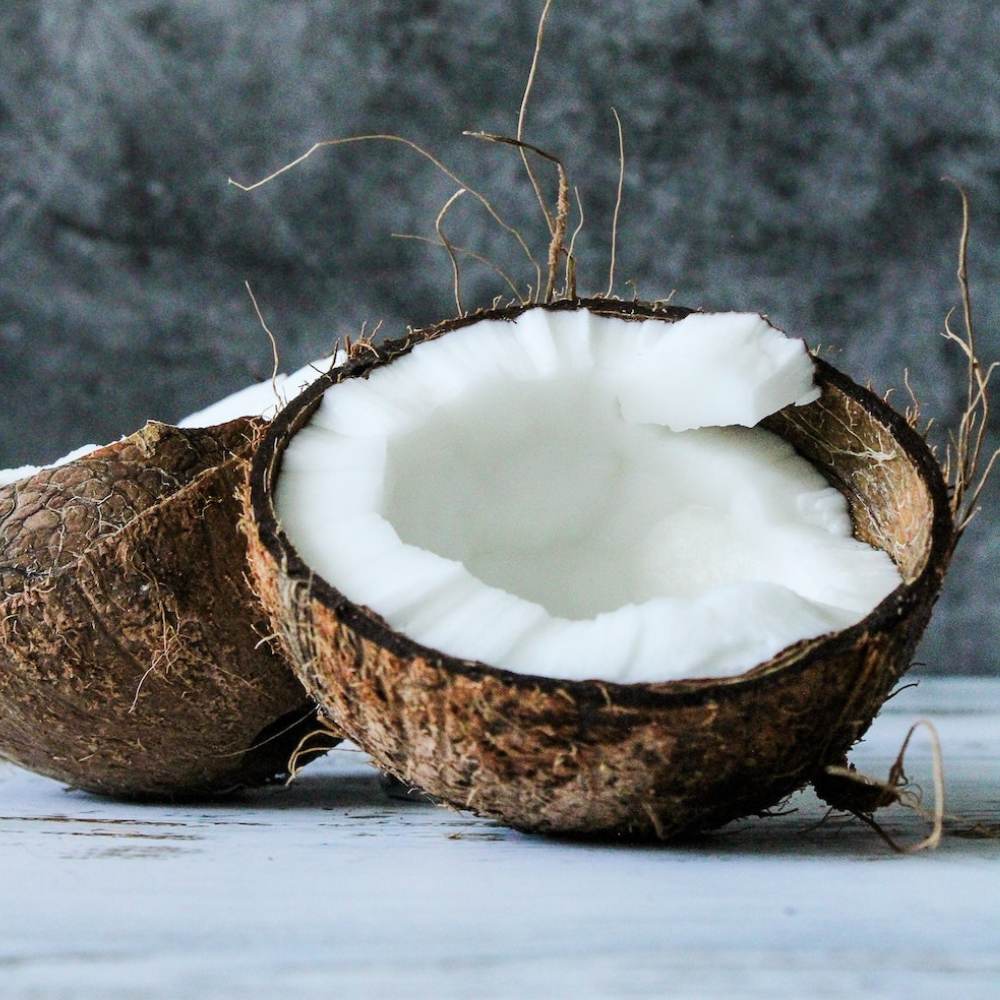
Go Coconuts!
All in all, virgin coconut oil can be a great way to naturally heal dry and chapped lips and dry skin.
Not only does it provide nourishing moisture to cracked skin but its anti-inflammatory properties can help reduce redness and irritation caused by chapping as well! The benefits of coconut oil in lip balm are limitless!
Plus there's no need to worry about any harsh chemicals or additives when using coconut oil - just pure goodness straight from nature's pantry!
So next time your lips are feeling dry or cracked give coconut oil a try. And while you're add it you can moisturize your hair at the same time!

















